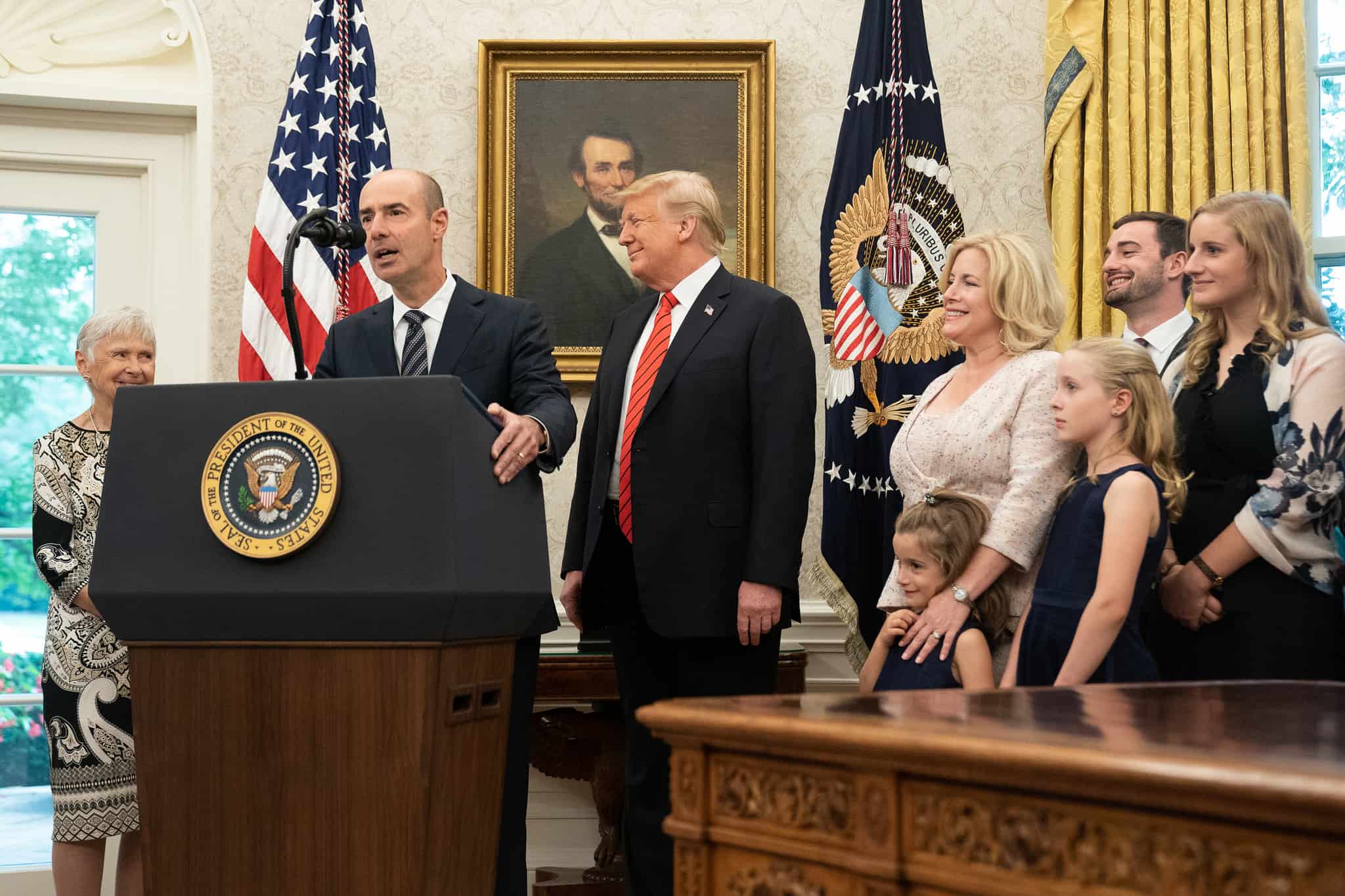
Jon Levitan is a student at Harvard Law School and a member of the Labor and Employment Lab.
Secretary of Labor Eugene Scalia is the subject of a scathing New Yorker profile written by Eyal Press. To readers of this blog, many of the subjects discussed will be familiar. But the full account of Scalia’s tenure is incredibly damning: from OSHA’s abdication of its duty to protect workers during the pandemic, to his rule making it easier for gig companies to misclassify workers as independent contractors, to his refusal to recuse himself from a rule requiring financial advisors to act in the best interests of their clients, even though he litigated against the rule as a lawyer. The piece highlights that Scalia’s reign has been particularly harmful to Black and brown workers. For example, Scalia ended a Labor department practice, created under the Obama administration, to collect not only back pay but damages from employers who committed wage theft. The bottom line, Press concludes, is that Scalia has predictably not the Secretary of Labor but “the Secretary of Employers.”
Amazon employees are pushing their employer to grant them paid time off to vote on November 3rd. Over 6,400 workers have signed a petition calling on the tech giant to make election day a paid holiday. The petition was organized by Amazon Employees for Climate Justice (AECJ), a group of activists within the company. Two members of AECJ were fired in April for protesting Amazon’s treatment of warehouse workers. The election day petition also highlights the lived conditions of warehouse workers: “We’re forced to choose between voting and making ends meet,” a warehouse worker said in AECJ’s press release.
Child care workers, always essential to a functioning society, have become even more critical amid the pandemic. Marcia Brown for The American Prospect profiles the industry as it undergoes a wave of union organizing. She highlights the massive win workers and organizers scored in California over the summer – when 97% percent of child care workers voted to join a union and bargain collectively with the state. Brown writes that in a moment when care work is as essential as electricity or the internet, “[w]orkers across the country are demanding that the next administration invest in the care economy, and by association, invest in the children and elderly individuals for whom they care.”






Daily News & Commentary
Start your day with our roundup of the latest labor developments. See all
June 30
Antidiscrimination scholars question McDonnell Douglas, George Washington University Hospital bargained in bad faith, and NY regulators defend LPA dispensary law.
June 29
In today’s news and commentary, Trump v. CASA restricts nationwide injunctions, a preliminary injunction continues to stop DOL from shutting down Job Corps, and the minimum wage is set to rise in multiple cities and states. On Friday, the Supreme Court held in Trump v. CASA that universal injunctions “likely exceed the equitable authority that […]
June 27
Labor's role in Zohran Mamdani's victory; DHS funding amendment aims to expand guest worker programs; COSELL submission deadline rapidly approaching
June 26
A district judge issues a preliminary injunction blocking agencies from implementing Trump’s executive order eliminating collective bargaining for federal workers; workers organize for the reinstatement of two doctors who were put on administrative leave after union activity; and Lamont vetoes unemployment benefits for striking workers.
June 25
Some circuits show less deference to NLRB; 3d Cir. affirms return to broader concerted activity definition; changes to federal workforce excluded from One Big Beautiful Bill.
June 24
In today’s news and commentary, the DOL proposes new wage and hour rules, Ford warns of EV battery manufacturing trouble, and California reaches an agreement to delay an in-person work mandate for state employees. The Trump Administration’s Department of Labor has advanced a series of proposals to update federal wage and hour rules. First, the […]